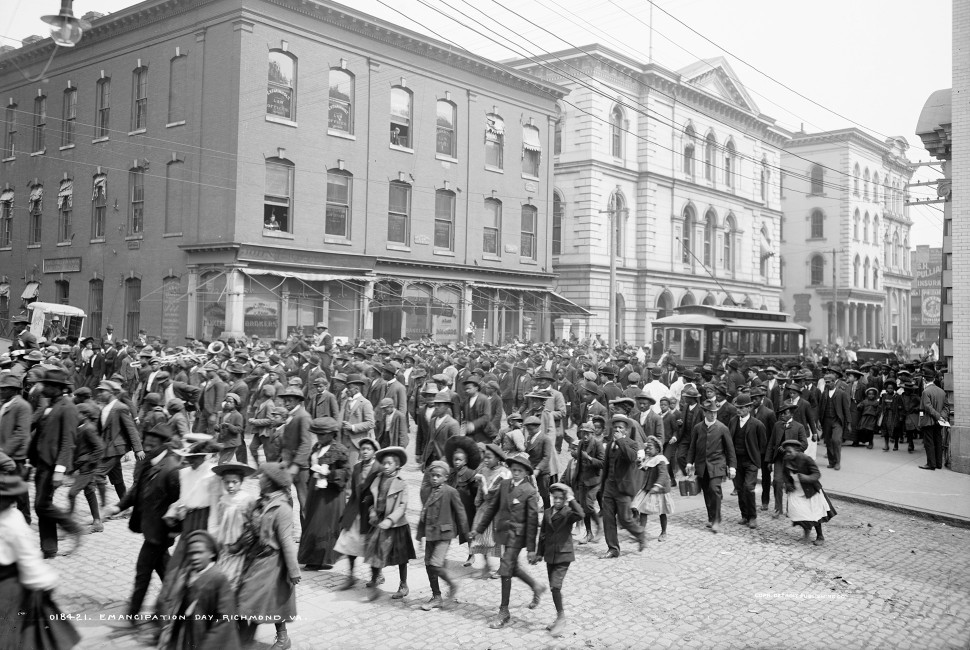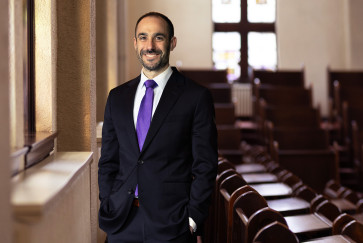Northwestern will recognize Juneteenth as an official University holiday beginning this year.
Juneteenth commemorates June 19, 1865, when some of the last enslaved African Americans in Texas learned that the Civil War had ended, putting into effect the Emancipation Proclamation, which had been issued two and a half years earlier by President Abraham Lincoln.
June 19 falls on a Sunday this year, so the University will honor Juneteenth on Monday, June 20.
“Failing to reflect on historical facts means we lose our capacity to understand the ways in which our past continues to inform our present,” said Robin Means Coleman, vice president and associate provost for diversity and inclusion and chief diversity officer. “Viewed this way, honoring Juneteenth means that we should engage in contemplation and learn about what Black freedom, in all of its manifestations, means.”
The official change to the Northwestern calendar demonstrates the University’s commitment to advance racial and social justice within the institution and its surrounding communities. It was first announced in a Leadership Note last fall. The Office of Human Resources will communicate information about the day off in advance of the holiday.
Failing to reflect on historical facts means we lose our capacity to understand the ways in which our past continues to inform our present.”
Vice president and associate provost for diversity and inclusion
“As with any commemorative moment such as Juneteenth, it matters what we make of it,” said Leslie Harris, professor of history and African American studies. “The Martin Luther King Jr. holiday has become a very powerful touchstone for people to reflect on the meaning of King’s life and legacy, as well as the civil rights movement more broadly. And thus, these holidays have the potential to expand the exploration of African American history beyond the month of February.”
Juneteenth, sometimes called Freedom Day or Emancipation Day, has been celebrated by Black Americans since the late 1800s.
For many, it is already a long-established tradition. Mary Pattillo, the Harold Washington Professor of Sociology and chair of African American studies in the Weinberg College of Arts and Sciences, remembers the celebrations of her childhood.
“Growing up in Milwaukee in the 1970s and ’80s, Juneteenth Day kicked off summer,” Pattillo said. “The parade ran down 3rd Street, which was renamed Martin Luther King Drive in 1984, illustrating the centrality of that thoroughfare for Milwaukee’s Black community.
“My favorite Juneteenth Day celebrations were in the ’70s when I got to feel all grown up by going with my older sister and her friends. By 1977, attendance had reached 100,000.
“To make sure we didn’t get separated, my sister held on to me by my one long braid. That’s how we maneuvered through the barbecue stands, DJ booths, vendors and parading cars. I don’t think I truly grasped the historical meaning of Juneteenth as the day that enslaved people in Texas learned of emancipation, but there was no question that it was cause for celebration.”
Juneteenth becomes the first newly observed holiday since Northwestern added Martin Luther King Jr. Day in January 2013.
“The historical significance of Juneteenth is important to our country and, as we think about diversity, equity, inclusion and belonging, we understand it is also important to our University,” said Lorraine Goffe, vice president for human resources and chief human resource officer. “As a newer member of the Northwestern community, I’m pleased to learn the University listened to the community and now recognizes Juneteenth as an official holiday.”


